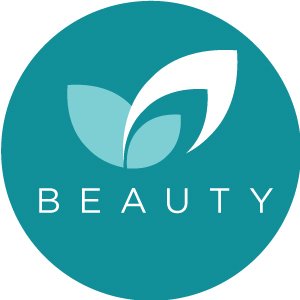
Acne (acne vulgaris) is the number one reason most people visit a dermatologist. It is a common skin disease characterized by reddened, oily skin with whitehead and/or blackhead pimples. It usually appears on the face, upper chest, and back, although it can occur on other areas of the body. Acne is most common among teens, often starting around puberty and sometimes continuing into the early twenties or later. Acne, however, can occur at any age, so it’s important to know why acne occurs and which strategies work best to produce healthy skin.
All About Acne
Acne occurs when hair follicles produce too much oil (sebum), clogging pores with dead skin cells—which sets the stage for bacterial growth. If the clogged follicle walls rupture, the skin can become inflamed.
Acne can cause some physical discomfort. Moreover, it can have devastating psychological effects, because acne sufferers are often self-concious about their appearance. This can lower self-esteem, cause the acne sufferer to withdraw socially, and may even lead to depression. Acne can also lead to permanent scarring, so it is important to treat acne early and aggressively.
Simple Skin Care Steps for Treating Acne
There are many different treatments for acne. Not all cases respond to the same treatment, so you might have to try more than one to recover healthy skin. The following, however, are guidelines to adopt for acne skin care.
- Clean carefully. Cleanse gently twice a day with warm water and a mild cleanser. You do not need to rub or scrub hard. A soft touch will remove dirt, bacteria, and dead skin cells. If you are too rough, you risk rupturing the follicles and inflaming the acne. Avoid harsh cleansers and soaps as they might dry the skin.
- Exfoliate occasionally. Exfoliate no more than twice per week. Exfoliating removes dead skin cells and promotes healthy skin, but overdoing it can worsen acne.
- Hands off! Touching your face with unwashed hands transfers to your face the dirt, bacteria, and viruses that you’ve picked up from door knobs, sink handles, and every other surface you’ve touched since your last hand-washing.
- Keep pores clear. Avoid products that can clog pores. Choose oil-free products, such as makeup and sunscreen, and look for products labeled “noncomedogenic,” because they don’t clog pores. (Comedone is the medical word for “blackhead.”)
Natural Acne Skin Care Options
Simple lifestyle modifications and natural remedies may also help combat acne. These healthy skin strategies tend to be low cost and low risk ways to help get rid of acne and keep it from coming back.
- Raise a glass. Drink plenty of water to flush wastes out of the body and help prevent acne flare-ups.
- Avoid stress. Stress can be an acne trigger. Avoid unnecessary stress whenever possible. For the stress you cannot avoid, try to find some relaxation techniques (warm bath, “quiet time” by yourself, listening to music, and so on) to help you de-stress.
- Speaking of de-stressing, try some exercise. Whether it’s a workout at the gym, walking or jogging, swimming, or a Zumba DVD, exercise is the best stress-buster. In addition, exercise also improves circulation, enabling your body to eliminate toxins most efficiently.
- Eat well. The jury is still out as to whether or not food triggers acne, but a healthful diet (lots of fruit, vegetables, and whole grains) promotes healthy skin. Suspected acne-causing foods include spicy foods, oily foods, fried foods, dairy products, seafood (because it is high in iodine), lots of meat, nuts, chocolate, and sugar.
- Go green. Eat lots of green vegetables and zinc-rich foods. Zinc kills bacteria. Also enjoy some carrots. The vitamin A in carrots may help prevent acne by reducing sebum production, strengthening the skin, and making it less oily.
- Try tree tea oil. It acts similarly to benzoyl peroxide, as it has anti-inflammatory properties and kills bacteria, but it does not cause as much drying. Maleluca oil is a similar product.
- Consider aloe. Aloe vera may help, but test it on a small area of skin first. It has a soothing quality, and some have found it beneficial in clearing up acne.
Other Acne Options to Discuss With Your Doctor
Doctors generally veer toward chemical treatments such as benzoyl peroxide, Retin-A, and antibiotics when they treat acne. Women and girls may be advised to try hormonal treatments, since acne flare-ups can be related to hormonal cycles. Before trying any of these treatments, discuss the potential risks and side effects with your physician. There are also other treatments such as microdermabrasion, phototherapy (light), and laser treatments, but again, discuss risks with your doctor so that you can restore healthy skin in a manner that is safe and effective for you.


